Winners and losers from NHL free agency's frenetic start
Day 1 of the NHL's free-agent frenzy is in the books, and what a day it was. According to CapFriendly, more than $783 million was spent on over 160 signings Wednesday.
Below, we dive into the winners and losers from Wednesday's festivities. Moves made in the days leading up to free agency were also considered for this exercise.
Winners
New Jersey Devils
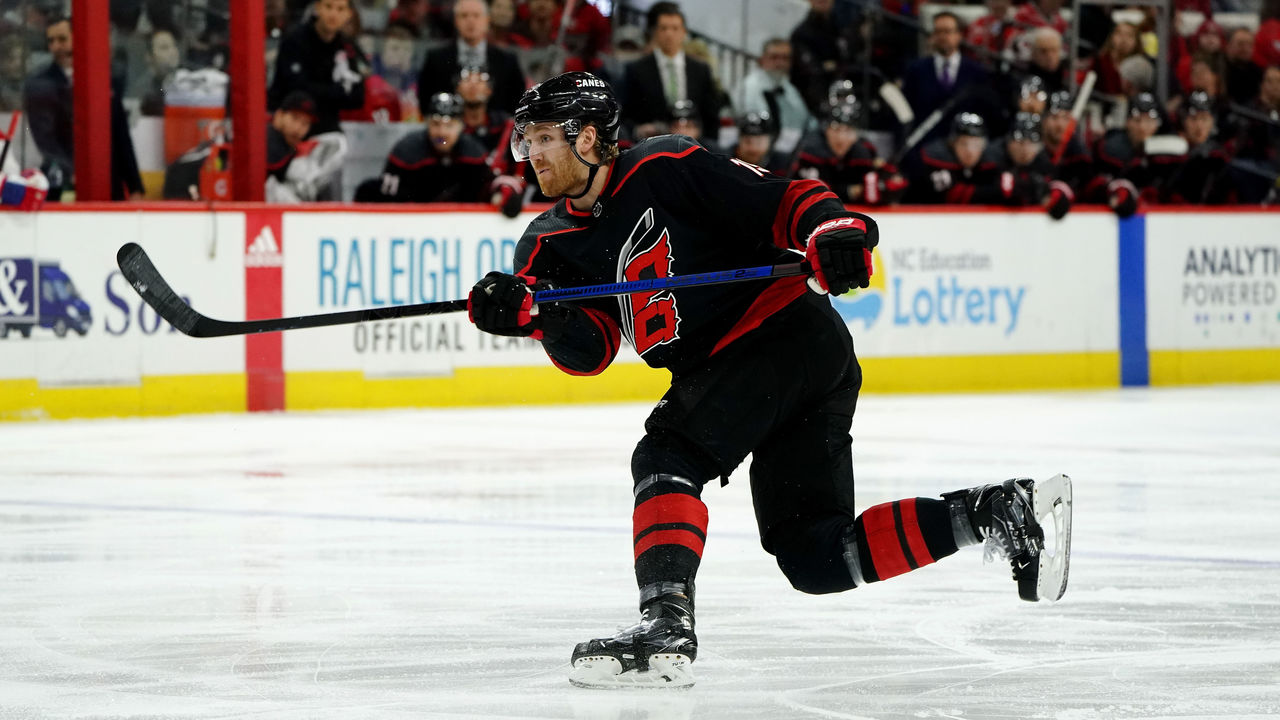
The Devils made the biggest splash of the day, signing prized free-agent defenseman Dougie Hamilton to a seven-year contract with an average annual value of $9 million.
Hamilton, a true No. 1 blue-liner, was the best free agent available. He's 6-foot-6, shoots right, skates well, and has tallied 82 points in his last 102 regular-season games. He also perennially posts excellent underlying numbers and projects to age well over the course of his deal.
Dougie Hamilton, who is better than Seth Jones and is somehow being paid $500K less, signs the best deal of the day. pic.twitter.com/Mo1vOUM2hH
— dom at the athletic (@domluszczyszyn) July 28, 2021
The fact that the Devils locked him in for $500,000 less per season than the Chicago Blackhawks recently paid Seth Jones is a huge win.
New Jersey's blue line is shaping up to be pretty solid. The team already had enough decent rearguards but really needed an anchor like Hamilton to elevate those around him and push others down the lineup. Here's the Devils' projected depth chart:
| LD | RD |
|---|---|
| Ryan Graves | Dougie Hamilton |
| Jonas Siegenthaler | Damon Severson |
| Ty Smith | P.K. Subban |
The club still has over $20 million in cap space, and Subban's contract comes off the books after next season. In addition to the 21-year-old Smith, who's coming off a stellar rookie campaign, the Devils also have Kevin Bahl and 2021 fourth overall pick Luke Hughes coming through the system.
When the Devils are ready to contend in a year or two, Hamilton should still be elite.
Tampa Bay Lightning
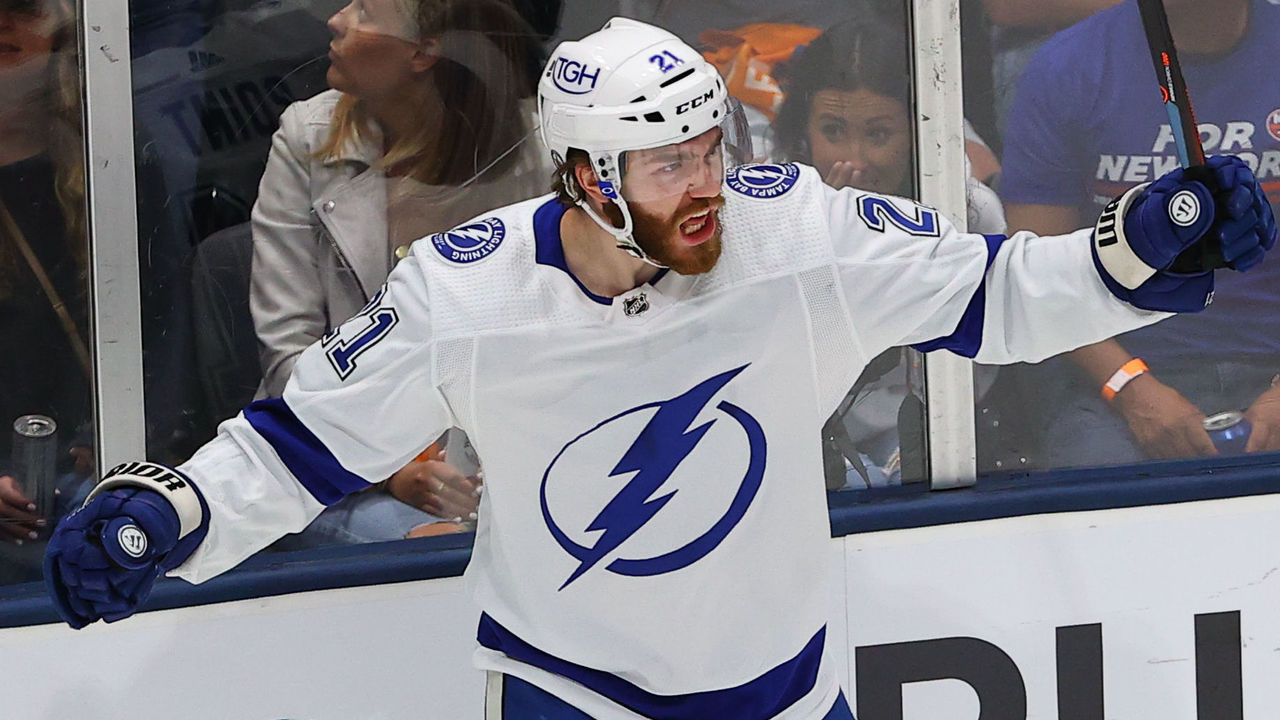
It was inevitable that the Lightning would get worse this offseason, but general manager Julien BriseBois is doing everything in his power to give his club its best chance at three-peating.
The Lightning are now cap compliant after losing Yanni Gourde in the expansion draft and trading Tyler Johnson, along with a second-round pick, to the Chicago Blackhawks in exchange for Brent Seabrook's LTIR-headed contract (a deal that will actually help the Bolts gain $1.8 million in cap space).
The cost of a second-round pick to get rid of Johnson's deal isn't all that bad.
BriseBois' best piece of work was inking superstar center Brayden Point to an eight-year extension with a $9.5-million cap hit that kicks in for the 2022-23 campaign. Point's cap hit is identical to fellow team pillars Nikita Kucherov and Andrei Vasilevskiy.
The Lightning also shored up the edges of their roster with three solid deals. Rock-solid defender Zach Bogosian joined on an ultra team-friendly, three-year deal that carries a cap hit just above the league minimum at $850,000. Pierre-Edouard Bellemare, a superb penalty-killing, fourth-line center comes in on a two-year contract with a $1-million cap hit. Lastly, veteran backup goalie Brian Elliott signed a one-year, $900,000 pact.
Tampa Bay could make more depth signings but can also rely on bigger roles from youngsters like Ross Colton, Mathieu Joseph, and Boris Katchouk. Based on the Lightning's excellent player development track record, all three could be impact players in the team's bottom-six forward group next season.
Colorado Avalanche
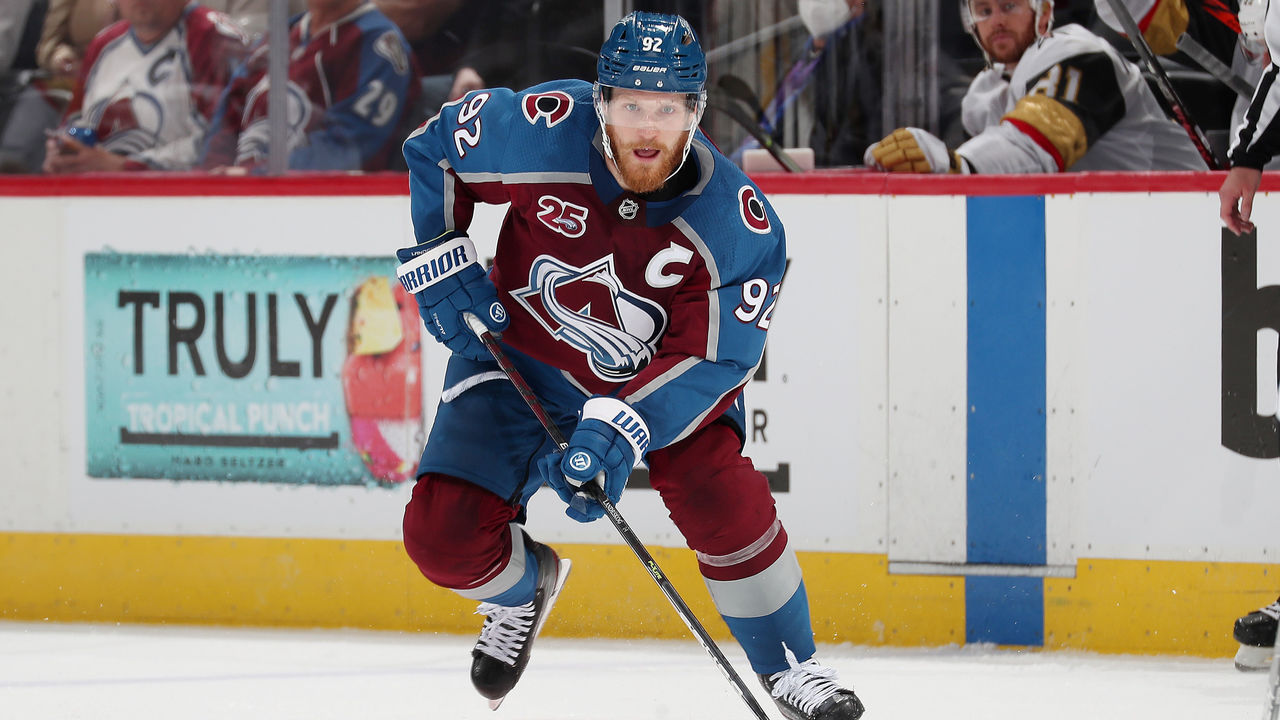
Lock up Cale Makar - check.
Re-sign Gabriel Landeskog - check.
The Avalanche already accomplished the two biggest items on their offseason to-do list. The third - re-signing Philipp Grubauer - did not come to fruition, but it may be a blessing in disguise.
Grubauer inked a six-year deal with the Seattle Kraken, which pays him $5.9 million per season. That's a hefty price for a 29-year-old who was propped up mightily by the excellent team in front of him. Grubauer was a Vezina finalist but only ranked 13th in the league in goals-saved above expected.
The Avs replaced Grubauer with Darcy Kuemper. Yes, they had to give up a first-round pick and Conor Timmins to acquire him, but he's arguably better than Grubauer and will only count for $3.5 million against the cap next season. Colorado has a clear Stanley Cup window for the next two years before Nathan MacKinnon's bargain contract expires.
Kuemper is coming off a down year but was fantastic in 2019-20, posting a .928 save percentage and a 2.22 goals-against average while finishing second in the league in goals-saved above expected. If he can return to that form in front of Colorado's elite team defense, look out.
Losers
Edmonton Oilers
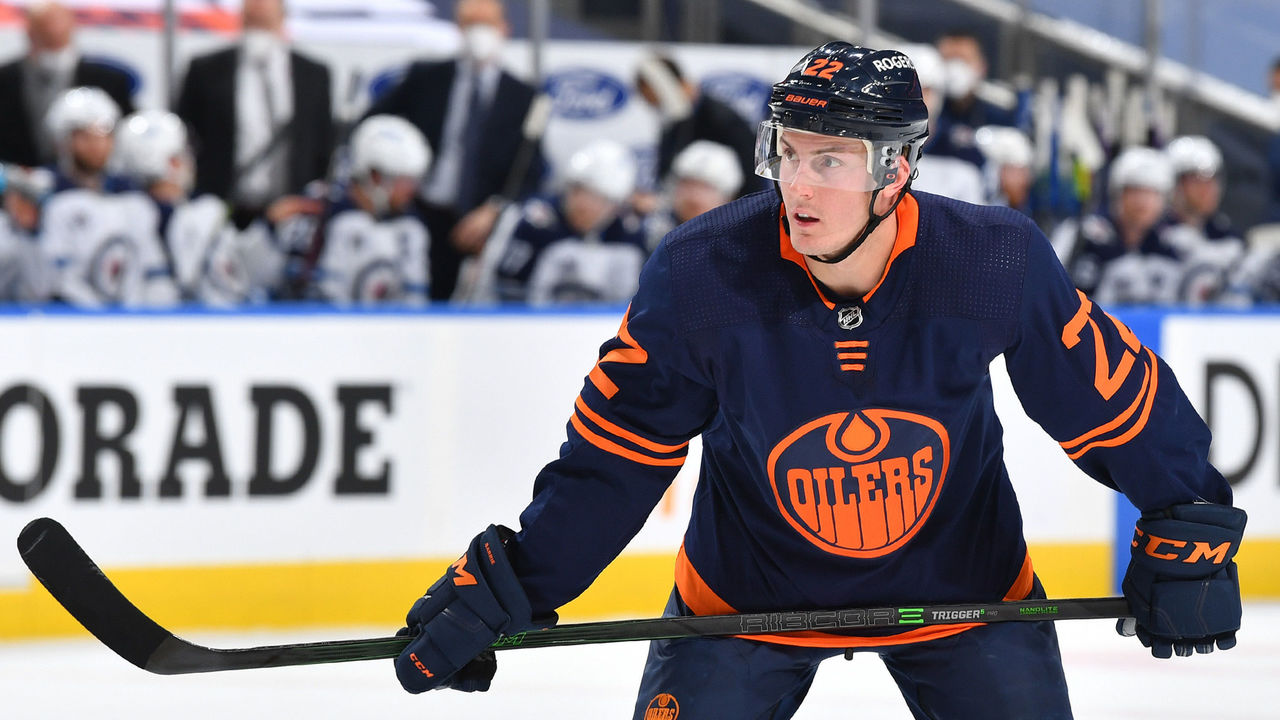
Ken Holland helped build the Detroit Red Wings' dynasty of the late '90s and early 2000s, but the Oilers general manager's reputation has taken a turn for the worse over the past couple of weeks.
The Oilers made a handful of questionable moves Wednesday, leaving them with one of the most suspect blue lines in the league.
Edmonton brought back Tyson Barrie on a three-year contract with a $4.5-million cap hit, signed Cody Ceci to a four-year pact that carries a $3.25-million hit, and traded defenseman Ethan Bear for forward Warren Foegele.
The Bear-for-Foegele trade isn't entirely bad in itself, but the fact that the Oilers shipped out a promising, homegrown blue-liner to make room for Barrie and Ceci is bad optics. Here's Edmonton's projected blue line:
| LD | RD |
|---|---|
| Darnell Nurse | Tyson Barrie |
| Duncan Keith | Cody Ceci |
| Kris Russell | Evan Bouchard |
Outside of Nurse, this back end is littered with question marks. Barrie is gifted offensively but is a defensive liability. Keith is in serious decline. Ceci is a No. 6 D-man at best. Russell is 34. Bouchard has plenty of potential but is still unproven.
Whichever twosome that head coach Dave Tippett decides to deploy as his shutdown pairing will get exploited by opposing top lines.
Holland did do well to improve Edmonton's forward depth, bringing in Foegele, Derek Ryan, and Zach Hyman, but the latter's seven-year deal worth $5.5 million per season is a massive overpay. The 29-year-old has had two knee surgeries, and workhorses tend not to age well.
The Oilers also didn't address their issues between the pipes, missing out on all the top free-agent options and failing to pull the trigger on a deal for Kuemper. The possibility of another season with a Mike Smith-Mikko Koskinen tandem inspires little confidence.
Vegas Golden Knights
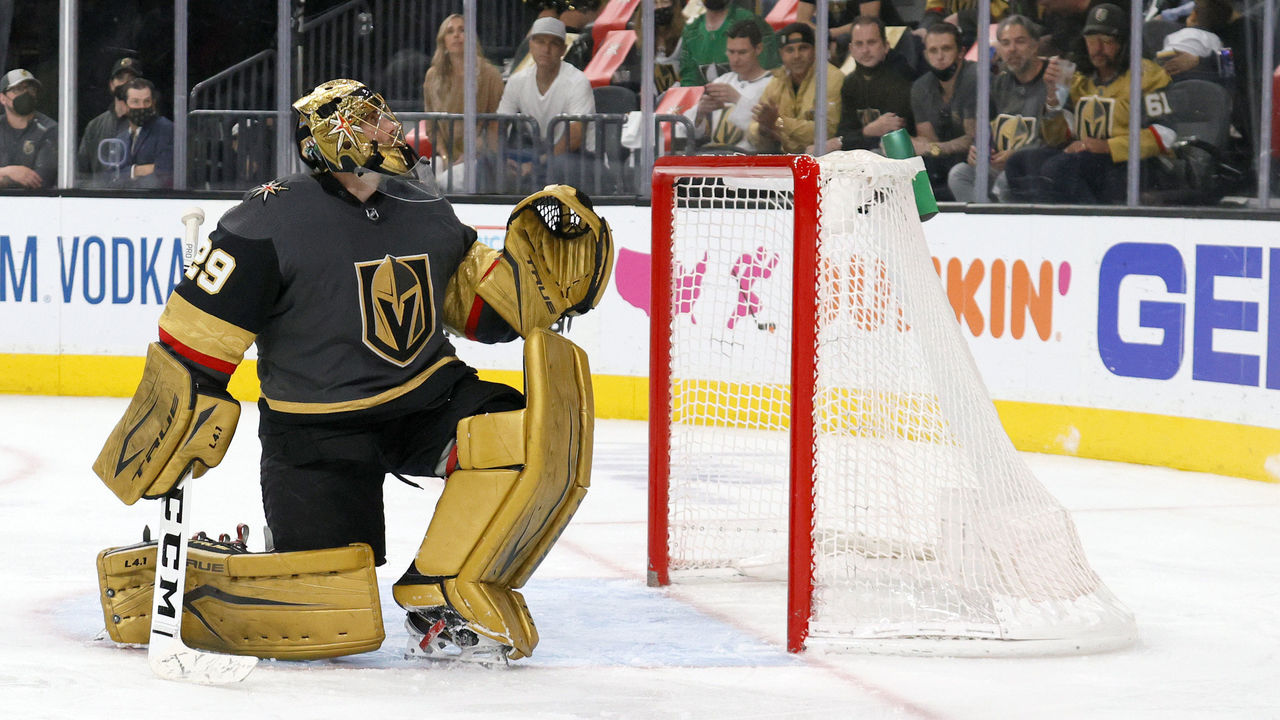
The Golden Knights are having the worst offseason in team history. They traded franchise icon and reigning Vezina Trophy winner Marc-Andre Fleury for virtually nothing Tuesday.
While many assumed the newfound $7 million in cap space would be used to make a big splash - as the club has been known to do in its brief existence - nothing of that nature came to fruition.
Instead, Vegas brought in Laurent Brossoit to back up Robin Lehner, re-signed deadline acquisition Mattias Janmark, and traded for Evgenii Dadonov. The latter move is especially puzzling considering the 32-year-old appears to be in decline coming off a dreadful 20-point campaign and has two years left on his deal with a $5-million cap hit.
Dadonov is, at best, Vegas' sixth-best winger, meaning he's destined for the third line. The Golden Knights' biggest need was at center, but they failed to address it.
HEADLINES
- X-factors for top teams in Olympic men's hockey
- McKenna has felony assault charge dropped, still faces other offenses
- Report: Maple Leafs seeking 1st-round pick for McMann
- Tkachuk, Hagel fight again as part of Battle of Florida brawl
- Germany adds Draisaitl 8 years after its top hockey achievement at Olympics